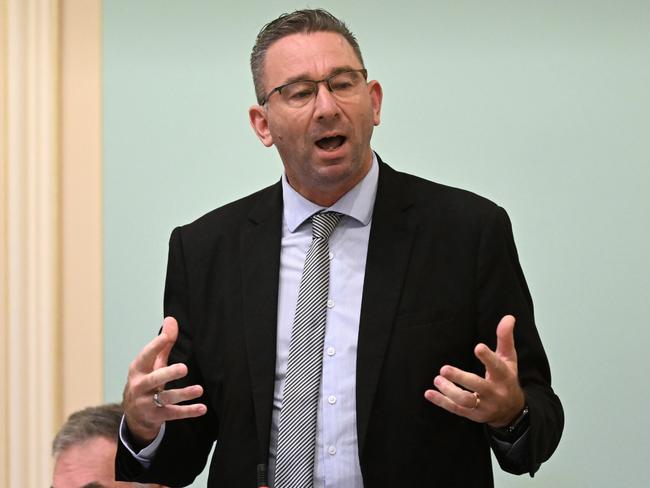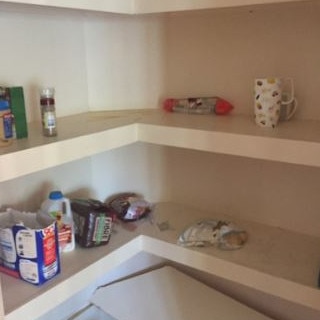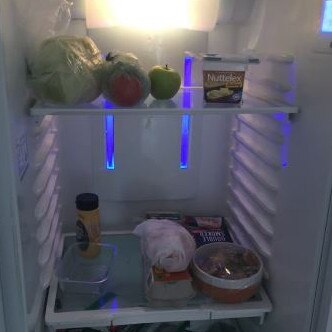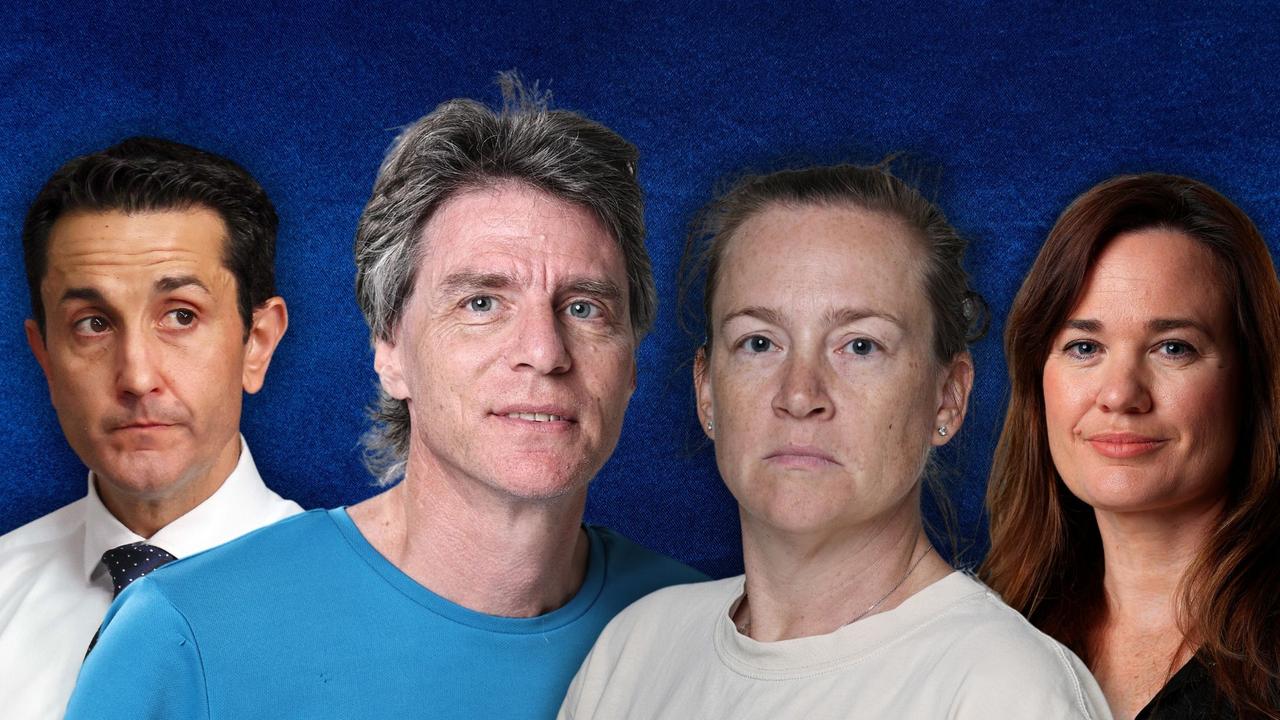Qld juvenile resi-care exposed as violent, squalid by whistleblowers
The state government has ordered a ‘top-level’ review of Queensland’s broken juvenile residential care homes, after reports of assaults, threats of violence and children left to sit in own urine for hours.

QLD Politics
Don't miss out on the headlines from QLD Politics. Followed categories will be added to My News.
A wide-ranging review of the state’s residential care system has been ordered by the Child Safety Minister.
It’s understood the Queensland Family and Children’s Commissioner will also have oversight over the review to be conducted by the department.
It comes after the Courier-Mail revealed the shocking state of residential care homes, including assaults, threats of violence, drugs and alcohol, defecating in bedrooms and disabled children left to sit in their own urine for hours.
Whistleblower carers also broke their silence revealing the horrific reality of life inside these homes.

The review will be “top-level” led by the Director-General and involve experts, advocates, front line workers. A report is due by September.
Child Safety Minister Craig Crawford is expected to confirm the review will take a particular focus on children under 12, those with disabilities, and of First Nations background.
Mr Crawford will also write to the QFCC, headed by Luke Twyford, seeking his oversight of the review and for Mr Twyford to report to him independently.
Reports of children physically injuring carers, smashing windows on homes and cars, attempting to jump out of cars while travelling on the highway and carers being told not to call the cops for help were some of the incidents relayed by multiple carers to The Courier-Mail.
Carers also expressed serious concern about children’s safety and neglect in homes, with stories of kids being abused by other children in the home, disabled children left in urine-soaked incontinence pads, young girls being allowed to meet with dangerous adult boyfriends, and extensive marijuana and alcohol use.
Queensland has almost 1700 children in residential care – far more than any other state – more than half of the youths have a disability and one in three housed are under 12.
The amount of children in care has doubled over the past five years, with each child costing the state $420,000 a year.
In response to several questions regarding the issues in resi-care, a Department of Child Safety spokeswoman said carers were urged to make reports of criminal activity to police.
“We are very concerned by these reports of abuse and neglect of children in residential care,” the spokeswoman said
“We refer any reports of harm that could be of a criminal nature to police and expect our care providers to do the same.”
Katter’s Australian Party state leader Robbie Katter has thrown his weight behind the push for an inquiry, writing to Mr Crawford – who was parachuted into the portfolio in May after Premier Annastacia Palaszczuk’s surprise reshuffle – and the Parliament’s bipartisan Community Services and Safety Committee calling for a sweeping inquiry.
“I appreciate Minister Crawford has just recently taken on this portfolio, and probably the state of affairs when it comes to rest-care should be laid squarely at the feet of his predecessor, however he is at the helm now,” Mr Katter said.
“Resi-care is a complete disaster, and is failing not only the kids unfortunate enough to be lumped in with the arrangement, but also the workers who staff the programs and the broader community.
“Ask anyone, whether they be in Mount Isa, Cairns or Brisbane, no one wants to live near these centres which are essential halfway houses staffed by unfortunate souls who have no control over whether kids come or go, and indeed what they get up to when they do go.”
One carer who has worked in the sector for about 20 years said it was “so much worse now” than it had ever been, recalling how a recent event had a worker leave in the middle of the night with the kids still in the house because of their fears for their safety.
“Fifteen or 10 years ago, half the kids – the violent, aggressive kids – you’re dealing with now who cause many of the problems would already be in youth detention,” he said.
“The staff are constantly bashed, flogged, threatened – it’s become normal for them to say ‘let me use my bong or I’ll bash you’.”
Carers also expressed concern children with severe sexual assault trauma were being housed with other vulnerable children – and would attempt to assault other children in the home.
“They just shouldn’t be allowed to be overnight with other kids, but all that happens is the other kids are told to lock their doors at night. Some of them just kick the door in.”
Other carers also expressed disgust at the state of the homes and what was provided – with one noting the “providers are making millions from the government” – yet carers were constantly being forced to buy essentials such as toilet paper and soap.
Profanities are also graffitied on to the walls, with some traumatised children refusing to use the toilet and only defecating in bags in their rooms.
TVs and fridges are kept locked away, while holes in the walls are crudely plastered over.
“No one – and certainly not children – should be thinking this is a standard way of living, it gives them absolutely no hope,” one said.

“It’s heartbreaking – these kids come from homes where they have never experienced love – and then they are given hand-me-downs, stained, clothing from other homes.
“I saw kids who had holes in their shoes, being sent to school like that,” another said.
“How are we ever going to build these kids up when they are made to feel they are completely worthless – and then we wonder why they end up getting into trouble.”
One carer said they were chastised by management after buying a bike for a home with two little boys, after realising there were no toys in the house for them to play with.
On Sunday Opposition Leader David Crisafulli also highlighted the issue during his key speech on the third day of the LNP’s state convention.
He said he would push forward with five KPIs to tackle the crisis – including an insistence on kids attending school and employment opportunities for older children.
Opposition child safety spokeswoman Amanda Camm said the issue had been neglected under the Labor government.
“Charities are pulling out of the sector, costs are blowing out and the number of children in residential care is skyrocketing, on the Palaszczuk Labor Government’s watch,” Ms Camm said.
“Shockingly, 259 of those (1700) children (in care) are under 10 years old, and half of all children are living with a disability, without the specialised support they require.”
A Department of Child Safety spokeswoman said the government was committed to investigating reports and taking the necessary steps to ensure children in residential care were safe, protected and well cared for.

“Departmental officers monitor both the quality of care provided, and ensure the environments are appropriate for young people,” she said.
“Providers must also provide staff with support, supervision, opportunities for training and development and complaint processes.
“Children and young people with a disability or developmental delay now make up more than half the total number in residential care (52.9 per cent as at March 2023). The department engages a range of specialist disability residential care providers and considers which provider will best meet a child’s individual needs prior to the child being placed.”
Mr Katter said recent news the Churches of Christ – which had 22 residential care houses across the state – would be pulling out showed the system was at a critical point and called for the program to be abandoned and alternative arrangements made for Queensland’s most vulnerable children.
“In the case of juvenile offenders who find themselves in resi-care, the KAP’s Relocation Sentencing policy which would detain and rehabilitate young criminals over a 6-24 month period in a remote location, would decrease housing demand,” he said.
“For vulnerable and at-risk kids, who through no fault of their own don’t have a safe home to live in or parents to care for them, they need to be provided a genuine alternative family unit – whether that is through foster or kinship caring, or perhaps even expanded avenues for adoption – needs to be decided by the relevant experts and authorities.”




